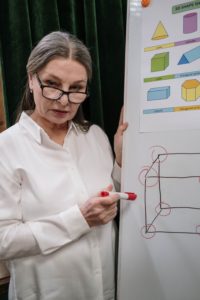
Are you seeing a pattern of gendered ageism in companies today? Do you feel you are being put out to pasture in a company you have been with for a long time? Just when you see your 401K in the near-er future, are you seeing a threat to staying where you are until you decide to leave?
If you’re like me, you paid your dues in the work world. You demanded respect in a male-dominated society. Are you seeing a threat to that respect? Is there a difference today in how and whether you can demand respect and get it? Is this prevalent within the company or just a few managers who are trying to affect the paradigm?

What’s it been like as a woman for you to get this far? First, of course, you’re a woman, so you have to earn it. What does that mean? It means that you have to be better than the others. You have to stand out. You have to pull your weight. You have to work harder – and smarter. You have to be a super woman. No griping about assignments. No job is beneath you. You are a team player. You are smart. You are resourceful. You are a problem solver.
Much as we think this is no longer the paradigm – I think in many ways, it still is.
The environment you are in makes a huge difference. You may be lucky enough to be in a supportive environment – maybe even with mentors, some even male. That’s fantastic, and we all want that world.
But look at the headlines recently. A large tech company referred to older employees as ‘dinobabbies’ and referred to a ‘older maternal workforce’ according to explosive court documents. Let’s hope it was a few “uninformed” managers and not systemic age discrimination.
But let’s also look at the company’s complaints. “They really don’t understand social or engagement.” “They are not digital natives.” “They are a real threat for us.” Now it seems to me that old men would just as easily fall into that category. But that isn’t who is being targeted.
Understanding that this is the tech community where “old” may be viewed as anyone older than 35 according to a recent article on Business Insider, as of March 2021, there are about 37 million older Americans in the workforce. In a recent study by the University of Gothenburg, found that tech workers over 35-years-old are considered old by the industry, while young workers are considered to be up to about 30 years of age.

Workers over the age of 35 are expected to be "less interested in technology and more interested in management," creating a stigma that older workers would not be "up to date with the latest technology and its potential," the study found.
If this is true, a whole lot of people should get ready to hang it up.
According to a study by AARP, lost economic activity from older Americans not being able to find work, change careers, or earn promotions because of age discrimination cost the US economy $850 billion in lost gross domestic product in 2018.

In addition, “there is also a perception that older people have a strong focus on family life outside of the workplace, making them less valuable to employers who want their workers available all the time,” the study states. COVID seems to be had that impact on most people. That sense of needing to be closer geographically to family in case something like COVID hit again, I believe is the cause of many of the over 15.9 million people who have moved during the coronavirus according to USPS data.
It is the primary reason my husband and I uprooted from warm AZ to chilly WA, and I know of many others who have moved for the same reason.
In addition, many women have left the workplace as a result of COVID. Overall, 57.5 percent of women aged 20 and older were participating in the U.S. labor force in June — down from 59.2 percent in February 2020 and a level that, even after months of improvement, is still the lowest in more than 30 years.

So what does all this mean? Does this mean we are going back to the 1950s and the 1960s with predominantly males in the corporate workplace? Or does it mean only young males, young being under 35? Are we really ready to lose the progress we have made as women?
What will be the new management paradigm? As the “good old boys” retire, who will be left and what will the new management paradigm look like? Young people - both women and men who will eventually become the good old boys and girls? What will be the future for “the good old girls" who are still around?

